What is the AUKUS all about?
The formation of AUKUS is one of the most meaningful security partnerships of the decade, with President Biden declaring the deal as “historic.” As the name suggests, AUKUS is an acronym of three nation-states, Australia, the United Kingdom (UK), and the United States of America (USA).
AUKUS, as a military partnership, sent ripples across the international community when the leaders of these three nations announced the US, UK and Australia Nuclear Submarine deal.

Picture Credits@ U.S. Navy photo by Mass Communication Specialist Seaman Faith McCollum)
AUKUS is significant as the nuclear submarine agreement and a security partnership signals a paradigm change in strategy, relationship, and policy across the Indo-Pacific region.
Although AUKUS entails advanced research and cooperation in AI, cyber intelligence, quantum computing, and defence sectors, the nuclear submarine deal formed the special announcement of the agreement.
Why? Because with the nuclear submarine deal, Australia will enter a select club of nations possessing nuclear submarines. The only countries with nuclear submarines include India, Russia, France, China, and the UK and the US.
In addition, the US is sharing its submarine technology for the first time in 50 years. It had previously only shared technology with the UK.
However, many experts claim that this nuclear submarine deal is challenging to realise and will compromise the national security interests of Australia in the backdrop of its ageing submarine fleet.
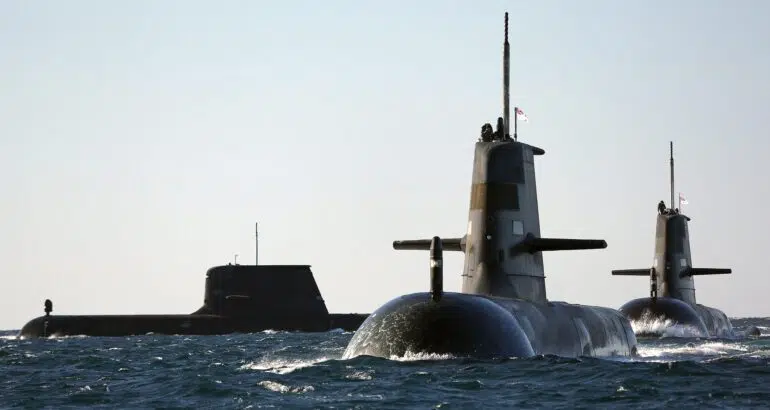
Picture Credits@ Royal Australian Navy picture; Sourced from- Navalnews.com
What Australia has to say about AUKUS
Nevertheless, if the agreement is successful, it can change the balance of power in the Indo-Pacific region, with Australia emerging as a new force of dissuasion.
Want to know more? Why the Australian nuclear submarine deal can be jeopardised. Read Here!
Australian Prime Minister Scott Morrison championed the deal as a new enhanced trilateral security partnership that reinvigorated the old allies’ relationship. Prime Minister Morrison mentions in his speech, “And while we’ve always looked to each other to do what we believe is right, we have never left at — each other. Always together. Never alone.”
Furthermore, elaborating about AUKUS, he also stated the rising challenges in the Indo-Pacific and the need for strong deterrence.
He said, “Our world is becoming more complex, especially here in our region, the Indo-Pacific. This affects us all. The future of the Indo-Pacific will impact all our futures.”
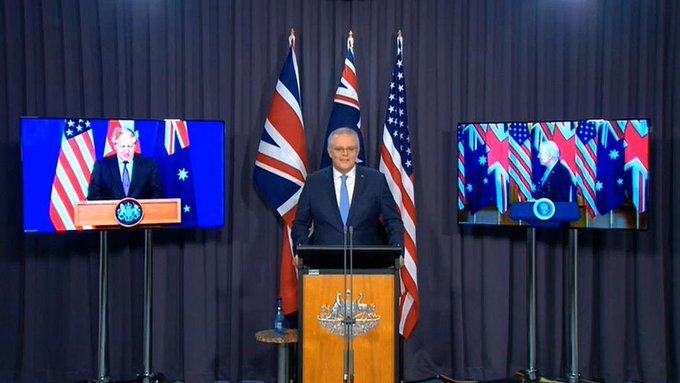
Picture Credits@ Official account Scott Morrison- Twitter.
The deal explained:
This nuclear submarine deal created a rage in the existing relationship between France and Australia, who had earlier signed a 60 Billion Euro deal with France to construct 12 diesel submarines.
However, the agreement now stands cancelled. Nevertheless, the stakes were high enough, with the French recalling their ambassadors from Australia as a sign of protest and severe dissent.
Want to know more? Read about France, Australia submarine deal here.
The plan is simple, Australia’s grand vision involves constructing eight nuclear power propelled submarines using American or British technology.
The submarines will be built in Australia after the technicalities of the deal are final within 18 months. After which, the subs will start entering into service by the late 2030s, replacing its squadron of six ageing diesel-powered submarines.

Picture Credits@ Official account Scott Morrison- Twitter.
Procuring nuclear subs could make Australia one of the first nations that does not have and supports active nuclear weapons programs but will operate nuclear-powered submarines.
Moreover, Australia has clarified that it does not plan to have nuclear weapons or nuclear-armed submarines. Instead, they have agreed to build nuclear submarines, i.e. submarines powered by nuclear reactors and conventional ballistic missiles.
Meanwhile, New Zealand has firmly confirmed its stance by banning Australia’s submarines from entering its waters. This decision is in line with New Zealand’s existing policy on the presence of nuclear-powered submarines.
Opportunities for UK and US
In the words of Prime Minister Boris Johnson, the opportunities from the AUKUS trilateral security agreement will provide cooperation in many fronts from AI to Defence.
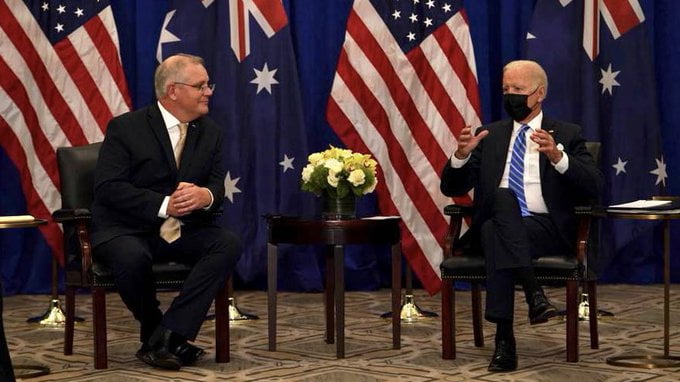
Picture Credits@ Official account Scott Morrison- Twitter.
The trilateral security partnership will, in turn, create hundreds of highly skilled jobs across the United Kingdom, which is actively looking for more work opportunities and cooperation post BREXIT.
Furthermore, PM Johnson also stated that this would allow the UK to reinforce its place as the leading science and technology provider, strengthening its national expertise.
From a strategic point of view, this will also enhance Britain’s position in the Indo-Pacific theatre, which is currently dominated by France when it comes to other European nations.
All the major nations of the Indo-Pacific region have proclaimed that maintaining freedom of the seas and a rule-based international order is their priority.
However, AUKUS has not stated explicitly that the trilateral partnership seeks to check on China’s growing naval powers and adventures in the Indo-Pacific region.
The Chinese perspective.
It is well evident on the face and has also acknowledged by US officials that China possesses a severe threat to the USA and its allies. Analysts have described the Chinese Navy as the fastest military buildup since World War II, backing Beijing’s strong economy.
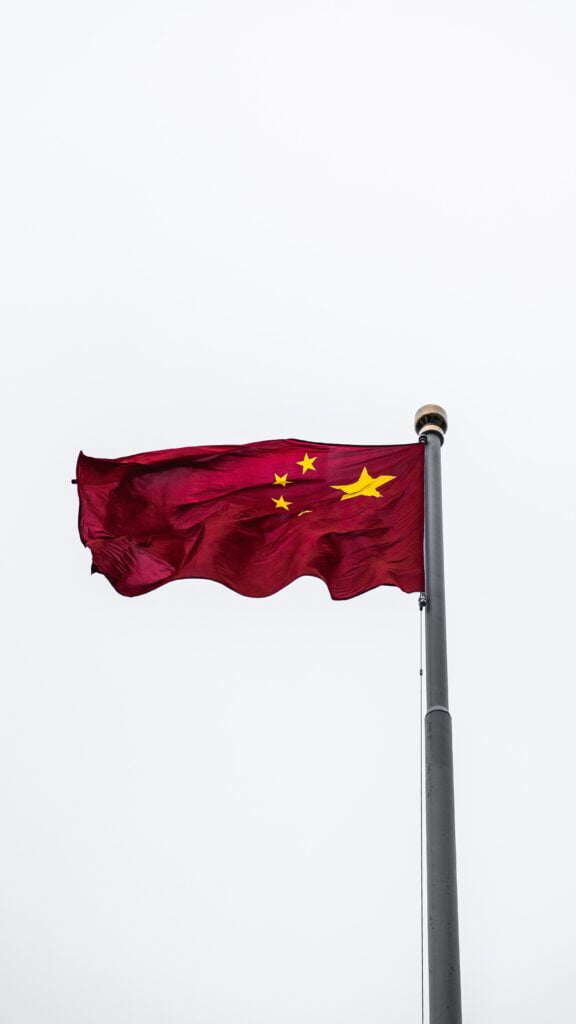
Picture Credits@ Alejandro Luengo
Nations have been anxious about the Chinese domination since the south china sea dispute, but in the backdrop of the economic relationship, they choose to remain quiet.
However, in the wake of recent incursion by Chinese forces of Taiwanese air space and Chinas claim to unify Taiwan by conquering the island has put other nations on alert.
From the Chinese point of view, they have openly condemned the agreement as “extremely irresponsible”. Zhao Lijian, the spokesperson for the foreign ministry of the people’s republic of china, has said that this agreement seriously undermines regional peace and stability and intensifies the arms race.
Chinese spokesperson has warned the nations against this “Cold War mentality and ideological prejudice”, which results in arms race and buildup based on the perception of threat.
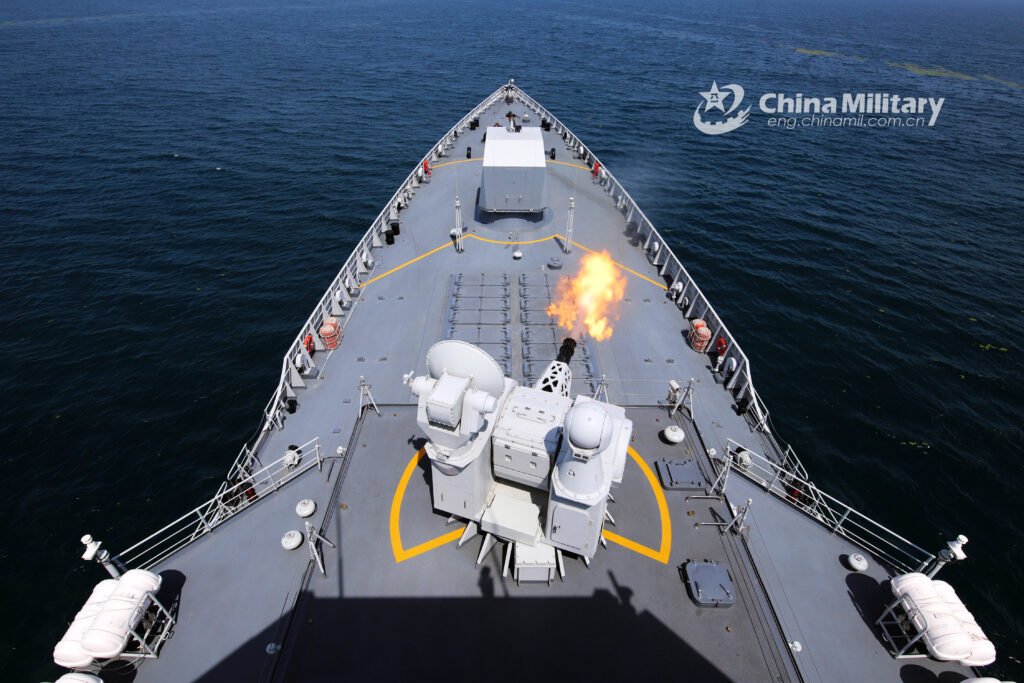
Picture Credits@ (eng.chinamil.com.cn/Photo by Zhang Hailong)
However, there is no doubt that China was “embarking on one of the biggest militaries spends in history”, as UK Defence Secretary Ben Wallace stated in an interview with the BBC.
Role of Quad: Diminished or Supported?
Quad, which initially faced the apprehension of China as a security grouping of the four nations India, USA, Japan and Australia, is now out of the zone of suspicion for the time being.
QUAD leaders have also initially maintained that it is not a military grouping. It was also continuously emphasised that QUAD is not a military alliance or an Asian version of NATO. With the coming of AUKUS, it is easier now to separate the Indo-Pacific pacts.
Nevertheless, the implications for Quad are twofold. On the one hand, many analysts believe that this nuclear submarine deal will also strengthen the position of QUAD, with Australia joining the nuclear Arsenal along with India.

Picture Credits@ Official account Scott Morrison- Twitter.
India already has an indigenous nuclear-powered submarine project and has a long-term arrangement with Russia for leasing nuclear-powered submarines.
On the Indian side, US leaders have already said they have informed India about AUKUS, and the deal Indians welcomed it. Moreover, strengthening its quad partner Australia will allow India to ensure a better maritime responsibility and sharing of intelligence on the movement of Chinese forces in the region.
Secondly, the QUAD nations can now focus on other areas of cooperation without raising any concerns. This will also clear the Indian deals with Russia concerning weapon systems, as QUAD has cleared its name of being a military group.
Although analysts suggest, this is also symbolic of the USA clarifying its intention of whom they consider their allies and to what extent they are willing to cooperate. It would not be wrong if Indians kept their reservations regarding the USA and continued pursuing their policy of strategic autonomy as the US has been a fluctuating ally.
By: Yash Arya.






[…] Want to know more about AUKUS, Read it here! […]
[…] more about AUKUS here and the nuclear submarine deal […]
[…] Nov 7 2021 […]
[…] Read about the latest military partnership in the Indo-Pacific here! […]